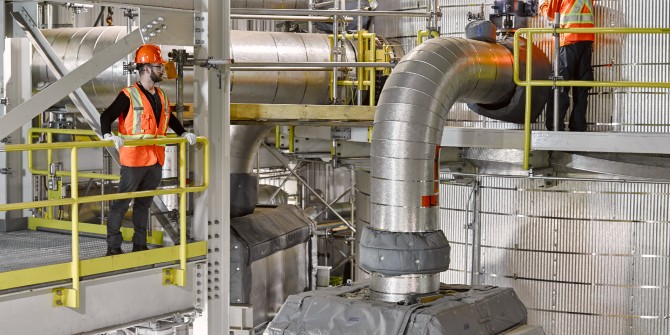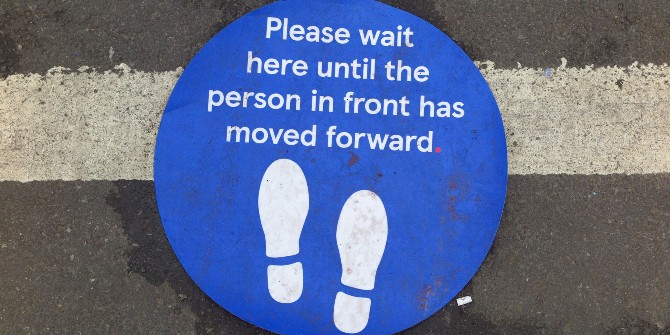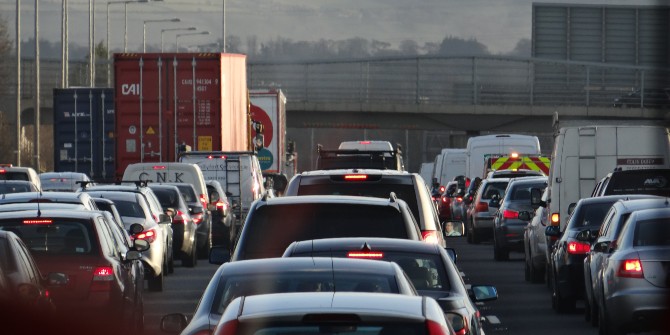Vaccines are helping us survive this pandemic. The climate emergency requires a similar leap in technology and the international co-operation needed to deliver it, says Yossi Sheffi (Massachusetts Institute of Technology).
The pandemic has taught us a great deal about responding to global challenges that threaten the wellbeing of humanity. Climate change is such a challenge, and there are striking parallels between the pandemic fight and the need to establish a cohesive response to the climate crisis.
In addition to being global, both challenges have complex, nonlinear effects, and cannot be solved through local initiatives. When viewed through a pandemic lens, climate change is a metaphorical infection spread by uncontrolled practices that increase the amount of greenhouse gases in the atmosphere. This “infection” causes various symptoms including temperature fluctuations that drive extreme weather events, and disruptions to the planetary circulation of water and air. It has already damaged Earth’s lungs.
Another common denominator is that changing human behaviour represents our first line of defence against these crises. Pandemic-related examples include the imposition of mask-wearing and social distancing mandates. In the case of climate change, we are trying to persuade individuals to shift their consumption habits towards carbon-light (or even net-zero) products and services.
However, the pandemic had shown us that it is difficult – in many cases almost impossible – to overcome the cultural inertia that resists behavioural change. For example, in the US the list of lawsuits against mask mandates is growing, including legal actions to prevent masking in schools. And despite a prolonged campaign to persuade Americans to get vaccinated against a life-threatening disease for free, many still refuse to do so. For instance, fewer than 50% of the people in the states of Idaho and West Virginia have received their first COVID vaccine dose. In Austria, just over 63% of the population is vaccinated, and the country recently imposed lockdown restrictions on the unvaccinated in response to a spike in COVID infections.
The work of psychologist and Nobel Prize winner Daniel Kahneman helps us to understand such recalcitrance. People develop excessive confidence in beliefs which they “know” to be true by relying on the word of trusted sources. “When people believe a conclusion is true, they are also very likely to believe arguments that appear to support it, even when these arguments are unsound,” he states in Thinking, Fast and Slow.
The same resistance prevents many people from changing their behaviour in support of efforts to combat climate change. Moreover, the threat of a changing climate is far subtler, less direct, and farther in the future than the threat of a deadly virus. This leads us to another key lesson courtesy of the pandemic: technology is the answer when people refuse to comply with measures designed to protect them from a global crisis – even when that crisis threatens their lives and livelihoods.
In the pandemic, the shining example of such a technological solution is the COVID vaccine, even though some people refuse it. As I explain in my new book, the vaccine’s journey involved governments, engineers, supply chain experts, and manufacturers combining to execute the greatest product launch in history. These teams mass-produced billions of doses of a complex medication from a standing start, and delivered them to billions of individuals across the globe (although not to enough people in the Global South). To accomplish this mission, they broke new ground in their respective fields. These breakthroughs included mRNA vaccine technology, new ways to package and deliver fragile medications, and mechanisms for using massive amounts of government and private sector funding to underwrite a global response. Operation Warp Speed in the US is an example of the innovative mechanisms used by governments to finance mass vaccination efforts.
Further, society created a three-layer foundation – science, engineering, and supply chains – for tackling global problems. This triumvirate comprises highly sophisticated scientific tools and data-gathering methods, engineering know-how that rapidly converts laboratory findings into product prototypes and factory systems, and globe-spanning supply chains that deliver large volumes of materials, parts, products, and services. And these foundational layers are woven together by the internet and transportation networks.

In the fight against climate change we are already deploying technological solutions including renewable sources of energy. However, to succeed, these solutions require a concomitant change in consumption patterns, which is unlikely on a global scale for the reasons described above. Moreover, much of humanity is still striving to achieve middle-class living standards that add to the carbon load in the atmosphere.
The world needs another technological leap beyond renewables that reduces the volume of greenhouse gases already in the atmosphere. Such a solution could be saleable air carbon capture and sequestration systems or some other atmospheric carbon reduction technology.
Armed with these solutions, humanity can use the experience and assets gained during the pandemic to deploy them. The pandemic has shown that when humanity is threatened and the danger is understood, huge amounts of money and human capital can be made available and companies can innovate at record speeds to combat the threat. If we heed the pandemic’s lessons our chances of triumphing over climate change – and other planetary threats – will be vastly improved.
This post represents the views of the author and not those of the COVID-19 blog, nor LSE.





